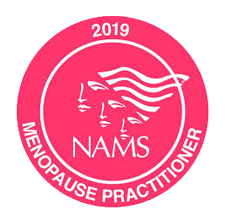Delayed Ejaculation
Delayed ejaculation is a medical condition in which a male cannot or has delayed ejaculation, either during intercourse or by manual stimulation with a partner. Most men ejaculate within a few minutes of starting to thrust during intercourse.
Men with delayed ejaculation may be unable to ejaculate, or may only be able to ejaculate with great effort after having intercourse for a long time (for example, 35-45 minutes). Delayed ejaculation can have psychological or physical causes.
Common psychological causes include:
- Religious background that makes the person view sex as sinful
- Lack of attraction for a partner
- Conditioning caused by a habit of unusual masturbation
- Traumatic events (such as being discovered masturbating or having illicit sex, or learning one’s partner is having an affair)
- Other factors, such as anger toward the partner, may be involved.
Physical causes may include:
- Blockage of the ducts that semen passes through
- Use of certain drugs (such as prozac, mellaril, and guanethidine)
- Nervous system diseases, such as a stroke or nerve damage to the spinal cord or back
Stimulating the penis with a vibrator or other device may determine whether you have a physical (often nervous system) problem. A nervous system (neurological) examination may reveal other nerve problems that are associated with delayed ejaculation.
If you have never ejaculated through any form of stimulation (such as wet dreams, masturbation, or intercourse), see a urologist to determine if the problem has a physical cause.
If you are able to ejaculate in a reasonable period of time by some form of stimulation, see a therapist who specializes in ejaculation problems. Sex therapy usually includes both partners. The therapist will usually teach you about the sexual response, and how to communicate and guide your partner to provide the right stimulation. Therapy often involves a series of “homework” assignments. In the privacy of your home, you and your partner engage in sexual activities that reduce performance pressure and focus on pleasure.
Typically, you will not have sexual intercourse for a certain period of time, while you gradually learn to enjoy ejaculation through other types of stimulation. In cases where there is a problem with the relationship or a lack of sexual desire, you may need therapy to improve your relationship and emotional intimacy.
Sometimes hypnosis may be a helpful addition to therapy, especially if one partner is not willing to participate in therapy. Trying to self-treat this problem is often not successful.
If a medication is believed to be the cause of the problem, discuss other medication options with your health care provider. Never stop taking any medicine without first talking to your health care provider.
Treatment commonly requires about 12 – 18 sessions. The average success rate is 70-80 percent. You will have a better outcome if:
- You have a past history of satisfying sexual experiences
- The problem has not been occurring for a long time
- You have feelings of sexual desire
- You feel love toward your sexual partner
- You are motivated to get treated
- You do not have serious psychological problems
If medications are causing the problem, your health care provider may recommend switching or stopping the medicine (if possible). A full recovery is possible if this can be done.
Contact Us
13126 120th Ave NE
Kirkland, WA 98034
Phone: (425) 398-9355
Fax: (833) 905-2316
Email: info@drserena.com
We serve patients Monday through Friday from 8 a.m. – 4:30 p.m.
COMPLETE THE FORM TO SEND US YOUR QUESTIONS OR COMMENTS
"*" indicates required fields




